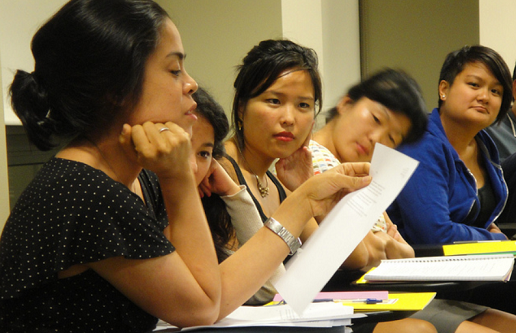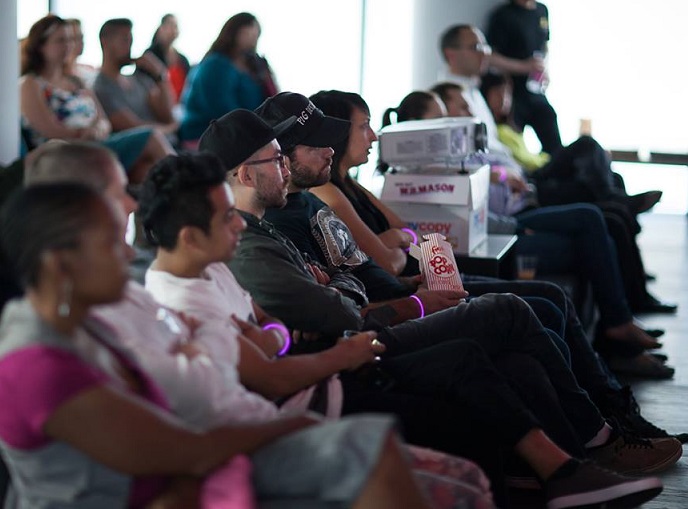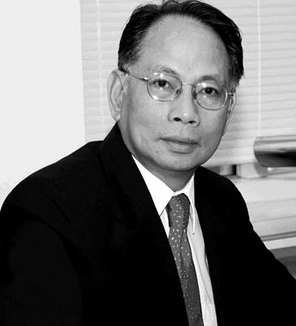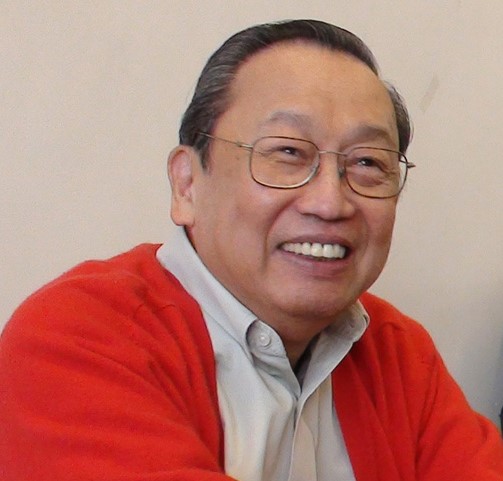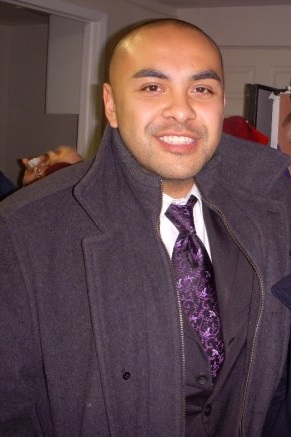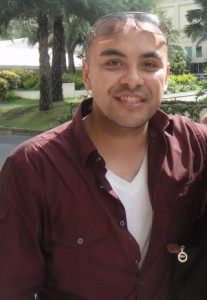Steven Raga: ‘Young FilAms more politically aware than politically conscious’
By Maricar CP Hampton and Cristina DC PastorSteven Raga, with his trademark aviator shades perched on his head, has seen it all with youth organizing.
One of the founders of UniPro – or the Pilipino American Unity for Progress – the Queens-born activist was there for the birth of many youth organizations and witnessed how some have endured while others bit the dust too soon.
“Seriously frustrated” that previous generations of leaders have left the community divided, he and like-minded organizers founded UniPro, which seeks to facilitate dialogues and encourage cooperation among groups and individuals.
“Working together should be easier than working separately,” Steven said by way of explaining the vision behind the founding of UniPro in 2009.
Born in New York, Steven and his family returned to the Philippines when his father, an accountant for Empire Blue Cross & Blue Shield, fell seriously ill. His father died a few weeks later. Seven-year-old Steven and his mother, who worked in hospital administration, would return to the city to resume their lives. He remembers riding the Sta. Cruz jeepney to his dad’s grave in Laguna when he came home to visit last year.
Steven speaks Arabic and the Ethiopian language, Amharic, which he learned as a student at the American University in Cairo. He said he has rarely used them “unless I’m ordering chicken and rice” in New York.
Recently, Steven has joined the National Federation of Filipino American Associations or NaFFAA, a clear departure from youth-oriented organizing. This time, too, Steven is no longer the token ‘youth rep,’ but a member of the National Board of Governors.
Are youth leaders now being taken seriously? Steven can only hope although he learned that “assigning token representatives is absolutely not the way” to extract support from young Filipinos.
TF: How did you get started with youth organizing?
SR: During undergrad, I held internships at both Filipino American Human Services Inc. (FAHSI) and Philippine Forum. Both experiences offered me unique insight and inspiration. At the same time, I became the President of the Philippine United Student Organization (PUSO) at Stony Brook University. I then got involved with Filipino Intercollegiate Networking Dialogue (FIND) where I became national director for District III and eventually elected as national secretary, then national chairman.
TF: How did UniPro come about?
SR: It came from a very clear understanding that working together should be easier than working separately – much more so when we‘re supposedly in the business of uplifting our community. The name says it all: Pilipino American Unity for Progress, meaning we can’t significantly progress without being significantly united.
TF: What do young FilAms stand for?
SR: I believe in order for a person to stand for anything the ground must first be stable enough for the walk. In that regard, young FilAms are doing just that: customarily carving out the most basic, but most needed of foundations. Very broadly, I think younger leaders advocate for the same issues as the Baby Boomer generation, except in some issues like college tuition reform, etc.
TF: Are they politically conscious?
SR: I’d say we’re more politically aware than politically conscious. Young FilAms of course are aware of the comprehensive immigration reform conversation, many are aware that Filipino World War II Veterans are still seeking equity after 60 years, but I believe “consciousness” suggests a sufficient degree of responsibility, commitment, and honesty.
TF: Do they see themselves as leaders or followers?
SR: The difference with young FilAms today, particularly in the Northeast, seem to be their preference to develop collaborative leaders next to them, rather than obedient followers behind them.
TF: Some second-gen FilAms may not even have ties with their Filipino culture.
SR: Honestly, I don’t hold Filipino culture as itself, a priority for second-generation FilAms to develop ties with. Wonderful, you love ‘kare-kare;’ now what are we doing for all these Filipino teachers who were trafficked into the U.S.? Oh you like to dance the ‘tinikling’? Cool, what are you doing to help the SAVE Act pass the U.S. Congress?
Culture, if forged together with nationalism and family can create real influence. Those three components should be deeply invested in during the next two decades because with the continued labor export policy of the Philippine government, along with its reliance on remittances, a deep connection to the homeland must be nurtured if the Philippines expects anything from Filipino Americans in the future – monetary or otherwise.
TF: Do you see a common ground between the two generations?
SR: Let’s see: How many young leaders did you see at the West Philippine Sea rallies two weeks ago? Likewise, how many of the older leadership are in the audience for Battle of the Barrios? I may be generalizing, but if you go to enough community events, the age and intergenerational gap is stone cold fact with very little initiatives to address the issue.
I think the biggest difference is that the younger leadership would rather hit to put runners on base, while the older leadership keeps trying to hit home runs every at-bat. We’d rather put in the energy to form infrastructure and intellectual/emotional capacity while they want to completely dismantle today’s problem with one swing. I have yet to decide whether this is a good or bad thing.
TF: How does one build community leaders?
SR: We can start be cultivating community leaders within the organization, over organization leaders within the community. This first begins by gaining critical public trust and leadership confidence to create the ideal environment for participation, collaboration and impact.
An example of this could be the creation of community oversight mechanisms, dealing with (1) organizational finances and (2) organizational elections & board transitions. Just a thought, but maybe we can attract and keep more highly qualified leaders when there are less rumors of organization funding going to personal flights to the Philippines or elections being fixed.
In New York City alone, we are blessed to be living in the era of Venessa Manzano, Rachelle Ocampo, Dr. Kevin Nadal, Rhodora Ursua, Kilusan Bautista, Yves Nibungco, Michael Vea, Bel Molina, Ed Santos, Dr. Suzette Briones, Nicole Ponseca, Marc Densing and Ryan Letada. If you’re not inspired by that talent pool, you probably don’t get inspired by talent.


